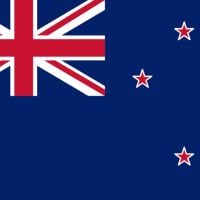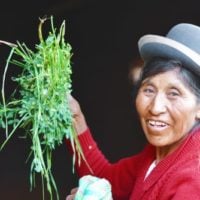Deadline: 13-Feb-24
The Global Forest Watch has announced the Small Grants Fund to strengthen the capacity of civil society organizations to reduce illegal or unplanned deforestation and sustainably manage forests by incorporating GFW into forest monitoring strategies.
Project scope should fall into one or more of the following approaches:
- Advocacy
- Examples include:
- Using data and imagery found on GFW alongside community territorial maps to advocate for land titles and other strengthened land rights.
- Create an open data platform with Map Builder by crowdsourcing, compiling and publishing data on concessions that overlap with ancestral community lands, and support communities in applying public pressure to get these concessions revoked.
- Examples include:
- Forest Monitoring and Enforcement
- Examples include:
- Develop the capacity of forest monitoring brigades to conduct field verifications of near-real time alerts with the Forest Watcher mobile application and other technologies, and work with enforcement officials to stop unplanned or illegal deforestation.
- Support Indigenous communities in developing response protocols, formulating legal strategies and compiling evidence of illegal deforestation including satellite imagery, data and analyses, and submitting it to law enforcement through formal complaints or other legal processes.
- Examples include:
- Journalism and Storytelling
- Examples include:
- Publish stories, data visualizations, and/or videos highlighting where illegal deforestation is occurring and how it impacts local livelihoods or ecosystems to raise public awareness and put pressure on authorities to respond.
- Use data found on Global Forest Watch to analyze the direct and indirect impacts of proposed development projects on local livelihoods and forest biodiversity and share these through traditional media outlets and social media channels.
- Examples include:
- Stakeholder Engagement and Capacity Building
- Examples include:
- Build the capacity of Indigenous or local communities and/or law enforcement agencies to utilize alert systems accessed through GFW tools to monitor, verify, and respond to forest threats within community lands or protected areas.
- Work with forest fringing communities to understand their needs for protecting their forest and co-design land defense strategies using GFW and other technologies to protect their forest landscapes.
- Examples include:
- Informing Land Use Management and/or Policy
- Examples include:
- Train a collective of smallholder farmers to monitor and manage their areas using forest, land use and carbon data.
- Use data and insights found on GFW to conduct high quality research and put together policy briefs to influence land use policy for more sustainable land management and long-term land use planning.
- Examples include:
Funding Information
- Small Grants Fund at a glance:
- The Small Grants Fund awards organizations between $10,000 and $40,000 USD
- The number of projects selected can range from 8-15, with 12 being the average
- Projects for the 2024 grant cycle will run from June 1, 2024 – May 31, 2025
- Each grantee will be assigned a WRI staff member as an advisor, who will provide virtual technical support and other assistance.
Eligible Projects
- The Small Grants Fund seeks applications for projects that clearly demonstrate how they will use the GFW tools and data on GFW as a key component of their strategy to reduce deforestation and sustainably manage forests.
- Applications should clearly articulate who the project aims to influence and how project activities will lead to improved forest outcomes. Projects may employ one or more of the following approaches:
- Stakeholder engagement and capacity building
- Advocacy
- Forest monitoring and enforcement
- Storytelling/journalism
- Informing decisions related to land use management or policy
- Successful projects will be those that have a demonstrated commitment to forest monitoring and sustainable forest management and can articulate how the tools and data on GFW will provide a value add to their existing work. They will also be able to convey which stakeholders are critical for their projects’ success and either describe the nature of existing relationships with those stakeholders, or outline a clear plan for and assess the feasibility of establishing any new relationships with project stakeholders.
Geographic Eligibility
- For the 2024 Small Grants Fund cycle, they are looking for projects that will be carried out in one or more of the countries below.
Eligibility Criteria
- In order to meet WRI’s requirements for subgrant eligibility, organizations must:
- Be legally constituted as non-profit and non-governmental;
- Have a total annual budget greater than $50,000 USD;
- Possess a computerized financial system for tracking and recording expenses (preferably a professional accounting software);
- Receive a rating of medium to low risk on WRI’s organizational assessment (containing questions regarding organization governance, financial and compliance structure), which will be carried out once finalists are provisionally selected.
- Be able to provide your organization’s most recent annual audit, or ALL three of the following documents:
- a Balance sheet for the previous two years;
- an Income Statement for the previous two years;
- a Cash Flow Statement for the previous two years
- At least one project point person with professional working proficiency in English (oral and written), in order to be able to submit the organizational assessment, narrative and financial progress reports in English, and communicate regularly via email and videoconference with WRI staff.
For more information, visit GFW.







































